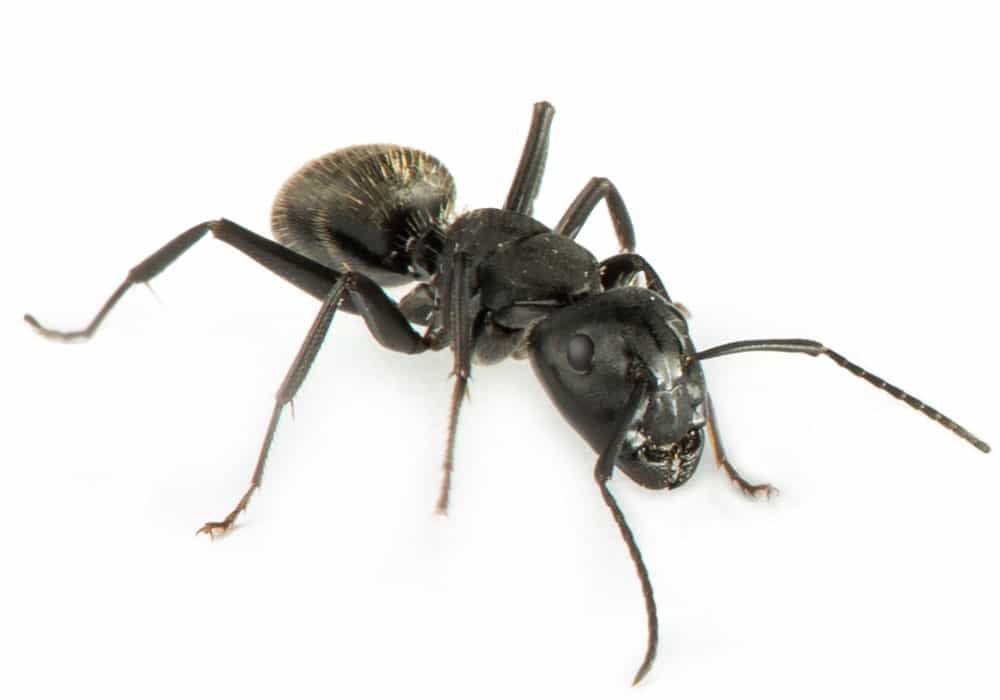Mice are active all through the year in West Linn, but as the weather cools the rodents begin to prepare for the winter. Mice begin to look for a comfortable place with a reliable food source to wait out the cold weather. In the fall and winter our office receives a high volume of phone calls regarding mice problems in West Linn.
The first step in contending with a mice problem is being able to recognize the presence of mice and understanding the process by which mice can be eliminated and excluded from a home or business.
What are signs of a mouse problem?
There are many signs that indicate the presence of mice. Droppings through the home are a clear sign that mice are present. You may also notice the rodent’s nest, the presence of gnaw marks on walls and furniture, and find that food items have ripped packaging or bite marks. Sometimes you can hear mice inside walls or scampering through the house in the night. Often times a household pet will alert you to the presence of mice by displaying unusual behavior like staring at a wall for a long period of time.
Are mice dangerous?
Mice pose a number of health hazards in addition to their tendency to cause major damage to structures. Mice have been known to spread more than 35 diseases and cause extensive damage to buildings, personal belongings, and furniture.
The presence of mice can cause deadly illness such as hantavirus, listeria, and salmonellosis. Mice urine and droppings can contaminate surfaces, leading to sickness. Individuals can also become ill by handling live or dead mice and their nesting materials. Disease can also be transmitted through the rodent’s saliva as well as the rodent’s bite. Devastatingly, a Central Oregon woman recently passed away after becoming ill following cleaning up a mouse infestation in her cabin.
Despite their small size, mice can cause extensive damage to a home. Some would say that it’s a little far reaching to say that mice can level your house—but they can! Mice regularly chew on electrical wires, in an effort to file their teeth and also to get through spaces where wiring is blocking a pathway. Exposed electrical wires are much more likely to spark and create a house fire. It’s estimated that 25% of all housefires of unknown cause are due to mice chewing on electrical wires.
Are mice only present in dirty homes?
No. Mice can be a problem in any home, regardless of how clean the home might be. Good sanitation will help to deter mice from entering the home in the first place, but once mice have taken up residence it is not possible to eliminate the infestation simply by keeping the home neat and tidy.
Why do I have mice at my home or business?
The Pacific Northwest is home to the the third biggest rodent population in the country. Just living in an area that is naturally conducive to a large population of mice increases the chance of infestation. In our field experience as pest professionals we find that the epicenter for a mouse problem tends to be the garage or crawl space. These are areas that are generally easily accessible to mice and provide good shelter especially during the fall and winter. Sometimes a rodent infestation can be connected to a more direct cause like pet food left out in the garage, bird feeders on the property or on adjacent properties, or heavy vegetation around the home. Often times however, an infestation of mice is somewhat random and boils down to just bad luck.
How do I get rid of mice in my home?
The first step to dealing with a mouse problem is detecting the rodent’s entry points and sealing them up. The historic homes of West Linn tend to have more entry points than some of the newer construction, so keep the age of your home in mind when checking for entry points. Even more recent builds will often have entry points for rodents around crawl space vent covers and other small openings.
The Center for Disease Control (CDC) recommends filling all holes ¼ inch or larger with steel wool. It’s important to use steel wool and not any other filler as mice cannot chew or claw through the steel wool fibers.
Once the entry points are covered, it’s time to bait and set traps. You can purchase inexpensive mouse traps and bait stations at most hardware stores in West Linn, including Ace Hardware and Home Depot. A good rule of thumb is to buy more than you think that you might need! Just be sure to use and store these products in areas where pets and children will not have access.
How do I get rid of mice with traps?
Place the traps in areas of high mouse activity with the trigger end of the trap facing a wall. Bait the traps with peanut butter, soft candy, or meat. It’s a common myth that mice love cheese. They’ll eat it because they will eat anything, but it’s not necessarily a preferred food. It can be helpful to tie the bait down with dental floss to ensure that mice can’t steal the bait quickly and get away without triggering the trap.
The first night of trapping tends to yield the highest number of mice, so be sure to use plenty of traps. Continue to set traps on a nightly basis until you’ve gone 4-5 consecutive nights without catching a mouse.
How do i get rid of mice with poison and/or bait stations?
First, it’s important to note that poison is very dangerous to humans, household pets and wildlife, so extreme caution must be used with these products. Bait stations are typically child and pet resistant, but it’s still always imperative to place out ot the reach of both children and household pets.
Place the bait in locations where you have seen evidence of mice activity– typically along walls and common rodent travel routes. Leave 15-25 feet of space between each station.
There are some drawbacks to this approach as the mice will occasionally take the poison and die in unreachable corners of your home leading to a horrible smell. It can be incredibly expensive to tear through a wall or open a ceiling to remove decomposing mice so most homeowners will wait the smell out. Smells caused by decomposing mice typically only last a few weeks. Ensure that you have proper resources for clean up if you choose to go this route.
Are cats effective at eliminating a mouse problem?
Although cats are great at keeping mice out of common living spaces, they can’t keep mice completely out of your home. Mice will continue to thrive in any areas that are inaccessible to the cat, which would include most mouse nesting areas.
Remember that mice also carry diseases. You wouldn’t want your cat to get sick. Cats can also bring in dead infected mice into the living space.
How do I clean up after a mouse infestation?
Mice are incredibly unsanitary, so it’s very important to clean up their nesting areas and dispose of dead mice appropriately.
The Centers for Disease Control and Prevention have specific guidelines on how to clean up after rodents. The CDC recommends wearing long rubber, latex, or vinyl gloves, and spraying the nesting area (including the carcass) with a mixture of bleach and water. Let the solution soak for at least 5 minutes before mopping up. Place the dead mice and the nesting materials in a thick plastic bag and then double bag. Place the bag in a sealed garbage can that is regularly emptied.
Who can I call to address a mouse problem in West Linn?
Aspen Pest Control loves serving our West Linn community including family homes and businesses. We have successfully treated many homes in West Linn for mice. We offer free, no pressure estimates and same day service for no extra charge. Our results are 100% guaranteed and we use products that are safe for your family and pets. Contact us to discover why your neighbors in West Linn are loyal customers of Aspen Pest Control.







